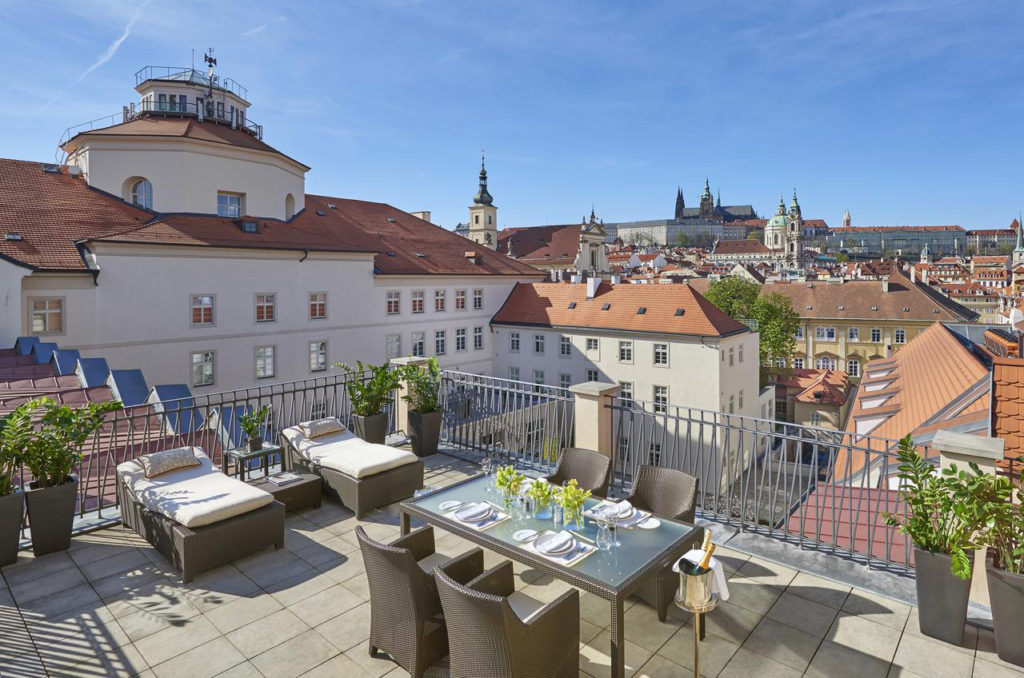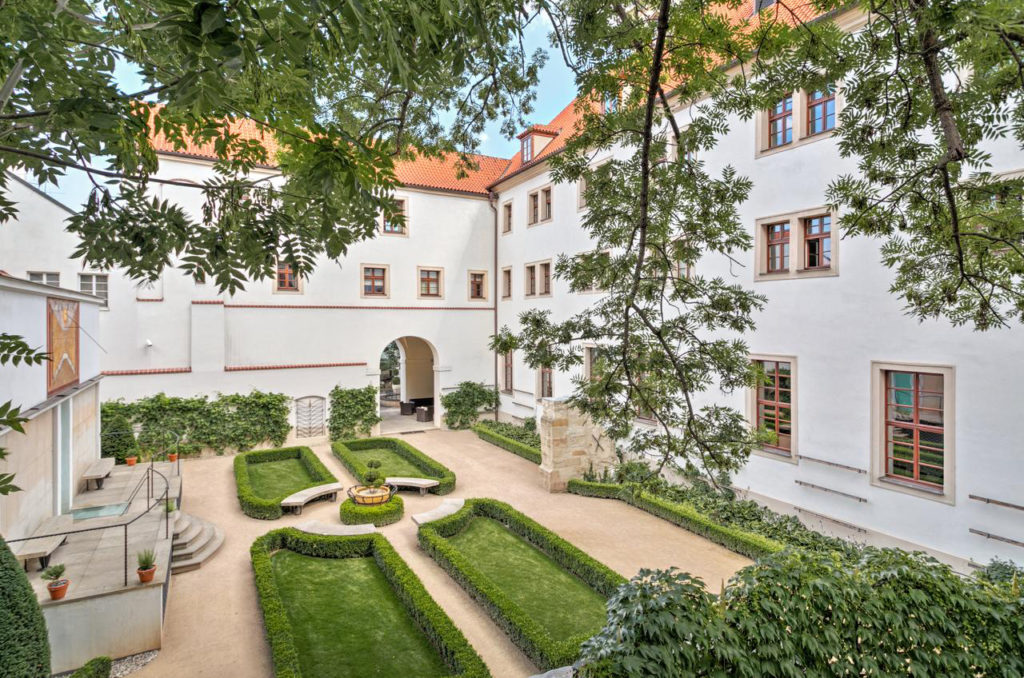PRAGUE’S CREAM OF THE CROP: LUXURY 5-STAR HOTELS

Golden Well
This world-class boutique hotel enjoys a fantastic location by the Prague Castle. The rooms overlook Prague’s rooftops or the Royal Gardens, and the view from the open-air terrace is breathtaking. Exceptional service and a range of luxurious amenities will make your stay at the Golden Well an unforgettable experience.

Alchymist Prague Castle Suites
The Alchymist Prague Castle Suites is an extraordinary small hotel located in a historical building at the foot of Prague Castle. It has just eight suites and feels private and quiet. The hotel prides itself in first-class service provided by friendly, helpful staff. The magnificent rooms are spacious and luxuriously furnished.

Alcron Hotel Prague
This Art-Deco hotel is located near Wenceslas Square and first opened in 1932. In 2015, Condé Nast Traveler ranked it among the best hotels in Central Europe. The Alcron Restaurant, specializing in fish and seafood, received the Michelin Star in 2012 – 2017. Outdoor dining is open in the summer.

Mandarin Oriental, Prague
Located in the historic Lesser Town, the Mandarin Oriental occupies a restored 14th-century monastery. In addition to first-class guest amenities and service, the hotel features a unique spa and an excellent Asian restaurant.

Aria Hotel
One of the world’s top luxury hotels, the Aria is excellently run, centrally located yet tucked away, and its music theme gives it a unique atmosphere. The rooms overlooking the Vrtba Garden feel quiet and intimate. The rooftop restaurant offers an incredible view of the Prague Castle and Lesser Town.

Alchymist Grand Hotel and Spa
Prague’s renowned Alchymist Grand Hotel and Spa is housed in a UNESCO-protected Baroque landmark building, the “House at the Infant Jesus” dating back to the 16th century. Its unique spa and health club are located in the 11th century cellars and complimentary wine and cheese tasting is offered daily.

Augustine, a Luxury Collection Hotel, Prague
The luxury rooms are inspired by Czech Cubism and are located in seven historic buildings including a 13th century Augustinian monastery. Guests can enjoy stunning views from the rooms, a hotel spa, an award-winning restaurant, and the hotel’s own St. Thomas beer.

Four Seasons Hotel Prague
The Four Seasons Hotel is located in the Old Town and offers views of the Prague Castle and the Charles Bridge. Its interiors are set in three historic and one modern building. Guests can enjoy a spa, a raw bar, a cheese cave, and a wine cellar.
HIGHLY RATED 4-STAR HOTELS

Hotel Residence Agnes
The Residence Agnes is a 4-star boutique hotel at a great location in the Old Town, less than a 10-minute walk from Old Town Square. Its bright and airy rooms are housed in a historical building. The hotel comes very highly rated by its guests for its customer service and location.

Bishop’s House
This design hotel is beautifully located by Charles Bridge, a 10 – 15 min. walk from the Prague Castle. Its main building dates back to the 16th century and has an empire façade from 1843. The Gothic tower is a former seat of the bishop, first mentioned in the 13th century.

Domus Henrici Boutique Hotel
The Domus Henrici Boutique hotel enjoys a great location in the Prague Castle area, between the Castle’s main entrance, the Loreta Chapel, and Strahov Monastery. The terraces offer panoramic views over Prague.

Hotel Pod Věží
The Hotel Pod Věží (Below the Tower) is at a wonderful location in Lesser Town, right at one of the Charles Bridge towers. Czech and international cuisine can be enjoyed in the charming restaurant or on its summer terrace in warm weather. Limited parking is available on site.

Unitas Hotel
The Unitas Hotel is a great-value hotel, minutes away from Charles Bridge and the Old Town, yet very quiet. It is housed in a former convent, originally built by the Jesuits. The large, clean rooms are air-conditioned and there is safe parking in the courtyard.

The ICON Hotel & Lounge
The trendy ICON Hotel & Lounge near Wenceslas Square features a Tawan massage centre and a tapas bar. All rooms have extra-wide Swedish Hästens beds and anti-allergenic bedding, some offer a home-theatre system.
Our accommodation booking service is brought to you in association with Booking.com, a top online reservation company and a specialist in European hotels. They offer some of the best accommodation booking conditions on the web. Every booking you make through My Czech Republic sends a small commission our way, at no cost to you. Thank you!